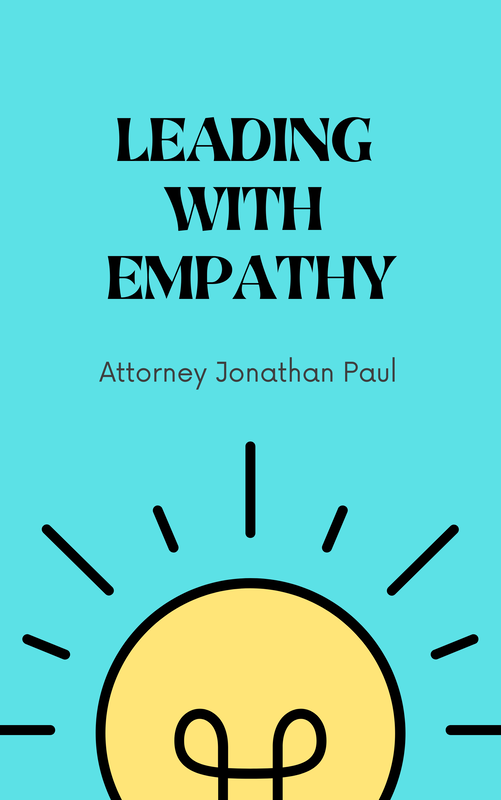Leading with Empathy - Step #2Your case is not black and white, it's not about guilty or not guilty. That is not the battle to be fought, yet most people have anxiety, fear and concern about all the bad things that will happen, because they committed a crime.
Sitting in a jail cell then being released, and facing a criminal case is daunting, and you're not going to sleep much, or be able to function in your normal lifestyle, because you replay the case millions of times in your head. It hurts, you want to go back and change your choices, but that's not possible. The status quo says if you committed a crime then you should be punished for a crime; far too often, a potential client will somehow try to convince themselves that they are something other than guilty, because being guilty seems like a dead end of your life being over, or at a minimum significantly changed for the worst. Do not stress about the past; remove the burden of the incident; put down your sword, this does not need to be a fight you cannot win. Be yourself, be vulnerable; cry, laugh, yell, do what you need to do, be a human being. Come out of the shadows and be honest with yourself. Did you break the law? If you did, that's ok; you're human, everyone does things they regret in life. Now that we are being honest with ourselves, let's challenge the status quo that they are two extreme results in a criminal case: very good and very bad. There is no realistic path to very good if you committed the crime; put that outcome out of your mind, but don't focus on the very bad; you control the outcome. There is nothing wrong with setting the bar high and believing that you are going to show the judge, prosecutor, probation and the police that your case is not a true representation of who you are. This begins with changing the culture of your case; what are you going to do to earn that change in culture? The change in culture begins with you; you will receive the culture you create; do nothing and you'll be treated like a non-human with a name and charge; adopt a growth mindset and an authentic self and you can reshape the culture and how you're treated during your case. Change is not easy; this is hard work; as you move forward there will be obstacles, but your focus on the higher purpose of changing the culture of your case will get you though it - if you believe in the purpose of deep change and a new mindset, it will be well worth it As you challenge the status quo, and grow as a person during your case, you are empowered, and when you're empowered, you could inspire and help others who may be going through something similar; be open to being a leader during your case and helping others who you may share time with. Real life example of challenging the status quo It’s very common for a client to reach out and tell me word for word how they broke the law, but then end their email in a way that tries to take the guilt back, because they believe if they don’t say the opposite of guilt, then the case is going to go poorly for them, and if they tell someone they are not guilty, that it becomes true. I recognize this very easily, because it is so common, and I do my best to explain to the client that it’s ok to be “really guilty”; embrace it, take the burden off your shoulders. This mindset is very common in drunk driving cases, and a client will tell me they were caught speeding, had 8 drinks and were arrested, but then tell me they can’t lose their license for a long period of time, go to jail or have a criminal conviction for the rest of their life. They focus on the status quo that a person who gets arrested for drunk driving automatically has these things happen to them. They aren’t wrong to believe this, because the power brokers in their case (judge, prosecutor, police, probation) think a very similar way. The good news is the majority of my drunk driving clients end up avoiding all three of these feared outcomes, because the client created the culture they deserve; they earned the result with hard work and a growth mindset. There is no shift in the status quo by saying “these cannot happen to me”, because what makes you special? The law is on the books for everyone, and just because it happened to you and its inconvenient, doesn’t make the status quo wrong. The client has the power to change the status quo, but it doesn’t happen by wishing for it to happen. I’ve also had clients who believe that if you tell your attorney, you did nothing wrong then somehow the attorney has the magic powers to make that story true. While there are some cases out there that a client should go to trial, most cases start better by telling the whole truth. A conversation with a prospective attorney that you have not yet hired is still privileged. Better to get honest feedback from your honest story on day one so there is no confusion. Comments are closed.
|
Available on AmazonJonathan Paul- X-Prosecutor |
